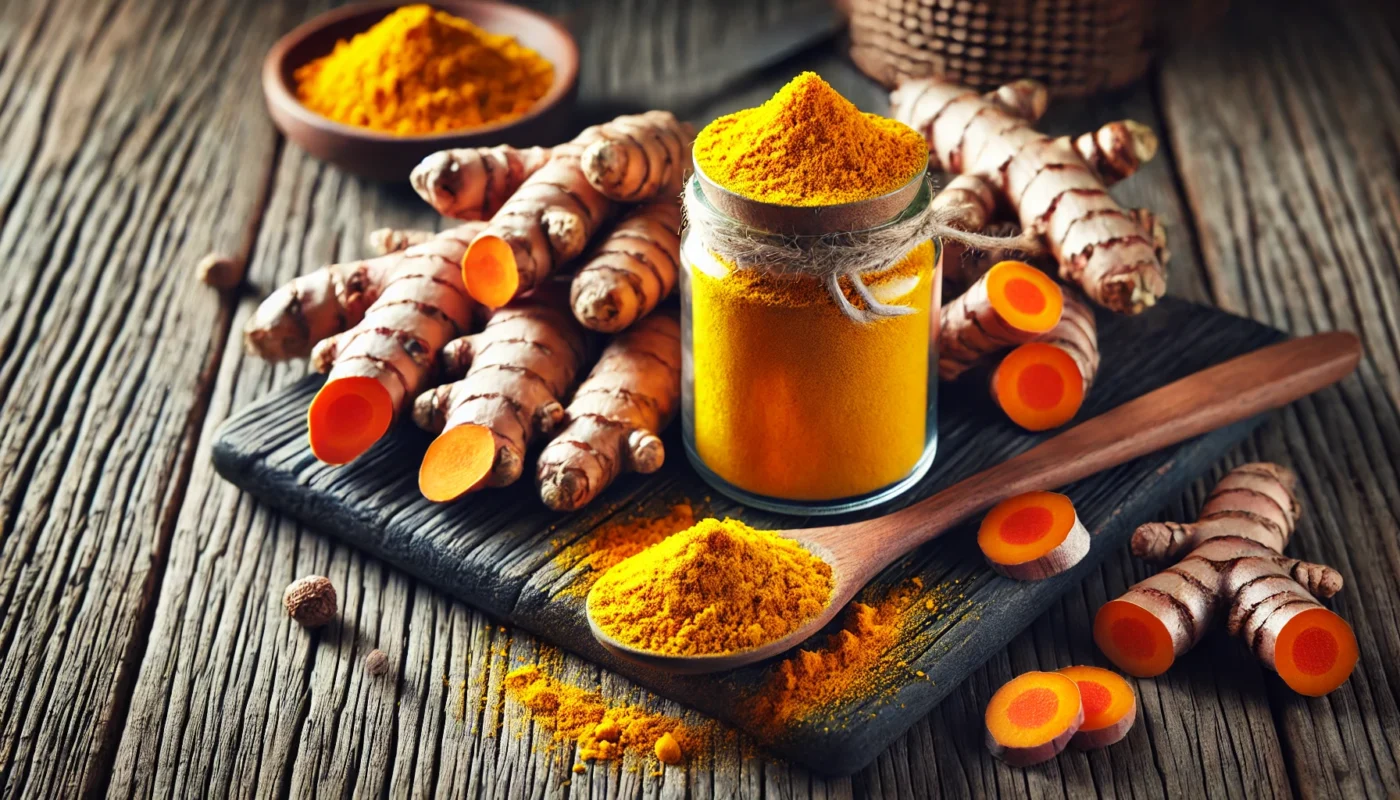Inflammation is a natural response of our bodies. It’s a defense mechanism against injury, infection, or disease. But when it becomes chronic, it can lead to serious health issues.
Nonsteroidal anti-inflammatory drugs, or NSAIDs, are commonly used to manage inflammation. They can provide relief from pain and swelling. However, they are not without their drawbacks.
Long-term use of synthetic NSAIDs can lead to side effects. These can range from stomach issues to cardiovascular problems. For some, these risks outweigh the benefits.
This is where natural NSAIDs come into play. They offer a safer, more holistic approach to managing inflammation. They can be derived from herbs, dietary supplements, or even certain foods.
Natural NSAIDs can offer the same anti-inflammatory benefits as their synthetic counterparts without the associated risks. Additionally, exploring non-steroidal anti-inflammatory options can provide valuable insights into alternatives that align with your health goals.
In this article, we will delve into the world of natural NSAIDs. We will explore their benefits, potential side effects, and how they can be integrated into your health regimen.
We will also look at the scientific evidence supporting their use. This will help you make an informed decision about their suitability for your needs.
Whether you’re a fitness enthusiast, a health enthusiast, or a medical patient, this article is for you. It aims to provide a comprehensive understanding of natural NSAIDs and their role in health and wellness.
So, if you’re looking for a natural alternative to conventional NSAIDs, read on. This article will equip you with the knowledge you need to make the best choice for your health.
Remember, your health is your wealth. And understanding how to manage it naturally is a step in the right direction. Let’s embark on this journey together.
You May Also Like: Do Antioxidants Really Combat Inflammation Effectively?
Understanding Inflammation and NSAIDs
Inflammation is a natural defense mechanism. It helps protect the body from injury or infection. But when it’s prolonged, it becomes a problem.
When inflammation persists, it can harm tissues and organs. This is where NSAIDs come in. They help reduce inflammation and relieve pain.
NSAIDs work by blocking enzymes called cyclooxygenase (COX). These enzymes play a significant role in the inflammation process. By blocking them, NSAIDs help decrease the body’s inflammatory response.
However, synthetic NSAIDs have their share of disadvantages. They can cause unwanted side effects. Common issues include stomach irritation and increased bleeding risk.
This has led many to seek natural alternatives. Natural NSAIDs work similarly to synthetics but often with fewer side effects. They can be found in herbs, supplements, and some foods.
- Synthetic NSAIDs: Over-the-counter options like aspirin and ibuprofen.
- Natural NSAIDs: Found in turmeric, ginger, and omega-3 fatty acids.
- Mechanism: Blocks COX enzymes to reduce inflammation.
- Potential issues: Long-term use of synthetic options can cause side effects.
With the right knowledge, natural NSAIDs can be incorporated into a healthy lifestyle. Their benefits extend beyond inflammation reduction. They support overall health and wellness.
Understanding how inflammation and NSAIDs interact helps make informed choices. It can guide you toward better health practices. By doing so, you can manage inflammation more effectively.
What Are NSAIDs and How Do They Work?
NSAIDs are medications used to manage pain and inflammation. They are widely prescribed for conditions like arthritis. They work by inhibiting enzymes involved in the inflammatory process.
Two primary types of COX enzymes exist: COX-1 and COX-2. NSAIDs typically block these enzymes. COX-1 helps protect the stomach lining, while COX-2 is mainly involved in inflammation.
Blocking COX-2 reduces inflammation and pain. However, blocking COX-1 can lead to side effects. That’s why it’s essential to choose the right NSAID for your needs.
Natural NSAIDs operate similarly but tend to target these enzymes more gently. This makes them a preferred option for those seeking fewer side effects. They are becoming increasingly popular for managing inflammation naturally.
The effectiveness of NSAIDs depends on various factors. These include the specific condition, dosage, and duration of use. Understanding these aspects can guide you in making optimal choices.
The Body’s Inflammatory Response
Inflammation is the body’s immediate defense mechanism. When there’s an injury or threat, inflammation signals the immune system. It acts to isolate and remove harmful invaders.
There are two types of inflammation: acute and chronic. Acute inflammation is short-term and is generally beneficial. It promotes healing and prevents further tissue damage.
Chronic inflammation, however, is prolonged and can be harmful. It occurs when the body’s inflammatory response continues without resolving the underlying issue. This can lead to tissue damage over time.
The inflammatory response involves several steps. The body produces chemical signals to increase blood flow to the affected area. White blood cells are then mobilized to fight the invaders.
While inflammation is crucial for healing, balance is key. Too much inflammation can lead to various health issues. It is implicated in conditions like cardiovascular diseases and autoimmune disorders.
Understanding the body’s inflammatory response helps in choosing effective treatments. By recognizing the signs of excessive inflammation, you can take steps to address it. Both lifestyle changes and natural NSAIDs can help modulate this response.

The Downside of Synthetic NSAIDs
While synthetic NSAIDs are effective at reducing pain and inflammation, they are not without drawbacks. Many people experience side effects, some of which can be severe. It’s important to be aware of these potential downsides.
Common NSAIDs like ibuprofen and aspirin are widely used. However, their widespread use doesn’t mean they’re risk-free. Frequent use can lead to complications, particularly with long-term use.
Some individuals may experience gastrointestinal problems. This includes stomach pain, heartburn, or even ulcers. These issues arise because NSAIDs can disrupt the stomach lining’s protective mechanisms.
Beyond gastrointestinal issues, NSAIDs can impact cardiovascular health. They can increase the risk of heart attacks and strokes, particularly in high doses or prolonged use. This is a serious concern for those with pre-existing heart conditions.
NSAIDs can also impact kidney function over time. They may reduce blood flow to the kidneys, impairing their ability to filter waste from the body. This risk is heightened in people with existing kidney issues.
A significant risk associated with NSAIDs is the potential for allergic reactions. Symptoms can range from mild skin rashes to severe anaphylactic reactions. Individuals with known allergies must exercise caution.
Another concern is that NSAIDs can sometimes interfere with other medications. They may reduce the effectiveness of certain drugs or increase the risk of side effects. It’s essential to consult with a healthcare professional if other medications are in use.
- Gastrointestinal: Risk of ulcers and stomach bleeding.
- Cardiovascular: Increased risk of heart attack, stroke.
- Renal: Potential kidney damage, especially with long-term use.
- Allergic Reactions: Possible severe or life-threatening responses.
- Drug Interactions: Can impact the efficacy of other medications.
For many, the goal is to manage pain effectively while minimizing risks. Understanding these potential side effects can help guide safer use of these medications. It’s why interest in natural alternatives is growing.
Common Side Effects of Synthetic NSAIDs
One of the most common side effects of synthetic NSAIDs is stomach irritation. Many users report discomfort, ranging from mild pain to severe ulcers. This occurs because NSAIDs interfere with stomach-protecting enzymes.
Another frequent issue is increased bleeding. NSAIDs can impair platelet function, leading to prolonged bleeding after cuts. This is a concern for individuals taking blood thinners or with bleeding disorders.
Headaches are another known side effect. Paradoxically, while NSAIDs are used to treat headaches, overuse can cause them. These are known as rebound headaches and occur when the body becomes reliant on medication.
Some users may experience dizziness or drowsiness. This can affect concentration and coordination, posing safety risks, especially when driving or operating machinery. It’s a common reason people seek other treatment options.
Lastly, synthetic NSAIDs can cause fluid retention. This may lead to swelling in the legs, hands, or feet. It can be especially problematic for those with heart or kidney conditions, where fluid balance is critical.
Long-Term Risks of NSAID Use
Long-term use of synthetic NSAIDs carries its own set of risks. One concern is the development of chronic gastrointestinal problems. Repeated use can lead to persistent ulcers or even gastrointestinal bleeding.
Another significant risk is cardiovascular complications. Regular consumption can contribute to heart-related issues. Patients with existing heart conditions are particularly vulnerable to these effects.
Aspirin, as one of the most commonly used NSAIDs, plays a unique role in both pain relief and cardiovascular health management. Learn more about its benefits, risks, and proper usage guidelines to minimize long-term complications.
Liver damage is also a potential problem with prolonged use of synthetic NSAIDs. Though less common, it remains a concern for those taking high doses over an extended period. The liver is vital for metabolizing these drugs, and its overwork can lead to damage.
Synthetic NSAIDs can also lead to dependency. Chronic use for pain relief can cause the body to adapt, leading to reduced effectiveness. This can prompt increased dosages and thus heighten risk.
Finally, long-term use can also suppress the immune system. This reduces the body’s ability to fight infections, making users more susceptible. Understanding these risks empowers informed decision-making about pain management strategies.
Alternatives like glucosamine, chondroitin, and collagen may provide relief without the risks associated with prolonged use of synthetic NSAIDs.

Natural Alternatives to NSAIDs for Inflammation
Natural alternatives to NSAIDs provide a valuable option for managing inflammation and pain. They offer potential health benefits with fewer side effects. This section examines why these natural remedies are worth considering.
Why Consider Natural NSAIDs?
Natural NSAIDs are particularly appealing for those with sensitivities to synthetic medications. They often have fewer side effects, making them a gentler option for long-term use. Some individuals find these alternatives work just as well as conventional NSAIDs in reducing pain and inflammation.
Another reason to consider natural NSAIDs is their holistic nature. Many natural remedies provide added health benefits beyond addressing inflammation. For example, they can enhance overall wellness or support specific bodily functions, like immunity or digestion.
Natural supplements designed for immune support often play a dual role in reducing inflammation and strengthening overall health. Discover which supplements align with these goals.
Cost is another factor to consider. Natural remedies, especially when sourced from herbs, can be more affordable than prescription drugs. They can be a cost-effective option for managing chronic conditions over time.
Their environmental impact is also noteworthy. Natural NSAIDs tend to have a smaller ecological footprint. They are generally derived from renewable resources, making them a sustainable choice for conscious consumers.
Overall, natural NSAIDs fit well into a comprehensive approach to health. They complement lifestyle habits that promote well-being, such as balanced diet and regular exercise. These factors collectively contribute to effective inflammation management.
Best Herbs for Inflammation
Herbs offer potent anti-inflammatory properties and have been used for centuries. They are integral to natural medicine and continue to gain recognition. Here are some of the best herbs known to reduce inflammation.
Turmeric: This golden spice contains curcumin, a powerful anti-inflammatory compound. It’s widely studied and lauded for its ability to reduce joint pain and swelling.
Green Tea: Rich in antioxidants, green tea reduces inflammation at the cellular level. It helps prevent diseases associated with chronic inflammation.
Ginger: Known for its digestive benefits, ginger also fights inflammation. It works similarly to NSAIDs by inhibiting enzymes involved in inflammation processes.
Boswellia: Also known as frankincense, boswellia is famous for its soothing properties. It’s effective in managing arthritis symptoms and reducing inflammatory markers.
Willow Bark: Often referred to as nature’s aspirin, willow bark contains salicin. It provides pain relief similar to synthetic NSAIDs without harsh side effects.
These herbs form a natural arsenal against inflammation. When used properly, they can significantly enhance health and comfort.
Understanding the mechanisms behind joint inflammation can help in selecting the most effective herbs for relief. Learn more about the causes and natural remedies for joint inflammation.
Anti-Inflammatory Supplements and Vitamins
Several supplements and vitamins can also help reduce inflammation effectively. They work by supporting the body’s natural defense mechanisms. Here’s an overview of some notable anti-inflammatory supplements.
Omega-3 Fatty Acids: Found in fish oil, these reduce inflammation and support heart health. They are especially beneficial for individuals with inflammatory diseases.
Curcumin Supplements: Concentrated extracts provide higher doses of this active compound than turmeric spice alone. This supports more potent anti-inflammatory effects.
Boswellia Extract: Like its herbal form, boswellia extract offers concentrated benefits. It’s useful for individuals needing stronger anti-inflammatory action.
Bromelain: An enzyme from pineapple, bromelain aids in reducing swelling. It’s particularly beneficial post-injury or surgery for its anti-swelling properties.
Vitamin D: Known for its immune-boosting properties, Vitamin D also helps regulate inflammation. It’s essential for those with low sun exposure or dietary intake.
These supplements and vitamins form an essential part of managing inflammation. They offer a variety of options to complement dietary intake and overall health strategies. By incorporating them, one can target inflammation effectively, naturally.

Scientific Evidence Supporting Natural NSAIDs
Scientific research is increasingly validating the use of natural NSAIDs. The body of evidence is robust, growing, and filled with potential. Studies focus on their efficacy in reducing inflammation and managing pain.
As researchers investigate the mechanics of natural ingredients, they are revealing powerful effects. Not only are these compounds effective, but they also provide a safer profile than many synthetic drugs.
Naturopathic pain relief options offer a holistic approach, focusing on treating the root causes of pain and inflammation. They include some of the most promising natural strategies supported by clinical research.
In recent years, the interest in herbal anti-inflammatories has grown significantly. This interest is fueled by both anecdotal success and rigorous clinical trials. Scientists are uncovering the molecular pathways through which natural NSAIDs work.
Research on Herbal Anti-Inflammatory Agents
Herbs, such as turmeric and ginger, have been subjects of scientific scrutiny. Turmeric’s active compound, curcumin, is noted for its potent anti-inflammatory properties. Clinical trials demonstrate its ability to decrease markers of inflammation effectively.
Ginger is another herb under the spotlight. Studies reveal that it can reduce symptoms of osteoarthritis and muscle pain. Its anti-inflammatory effects are attributed to compounds called gingerols.
Boswellia, or frankincense, has shown promise in managing rheumatoid arthritis. Research indicates its efficacy in reducing joint inflammation and stiffness. It works by blocking leukotrienes, molecules that cause inflammation.
Herbal teas designed for arthritis relief offer another natural way to manage symptoms. Explore the best teas for inflammation and joint health.
Willow bark, containing salicin, is recognized for its pain-relieving properties. Scientific studies support its use in conditions like lower back pain and osteoarthritis. It serves as a natural alternative for those sensitive to aspirin.
Green tea, rich in epigallocatechin gallate (EGCG), reduces inflammation and cell damage. Research supports its use in promoting heart health and reducing cancer risks.
These agents provide a range of options for managing inflammation naturally. They deliver benefits validated by credible research, enhancing confidence in their use.
Omega-3s, Antioxidants, and Other Nutrients
Omega-3 fatty acids stand out in anti-inflammatory research. Found in fish oils, they are particularly effective in managing chronic inflammation. Studies link omega-3 intake to reduced symptoms of rheumatoid arthritis and heart disease.
Antioxidants are crucial in combating free radicals, which contribute to inflammation. Vitamins C and E are well-studied for their antioxidant properties. They support cell health and bolster the immune system, reducing inflammation.
The mineral zinc plays a role in maintaining healthy inflammation responses. Research indicates it helps modulate the body’s immune function. Adequate zinc levels are associated with lower inflammation markers.
Flavonoids, found in fruits and vegetables, also exhibit anti-inflammatory effects. These compounds have been researched for their role in reducing chronic disease risks. They promote vascular health and help mitigate oxidative stress.
Targeted vitamins for neck and shoulder health can complement the benefits of flavonoids in combating inflammation. Learn more about the essential nutrients for upper body joint support.
Bromelain, derived from pineapples, is recognized for its enzymatic activity. Studies suggest it significantly reduces post-operative swelling and inflammation. Its systemic anti-inflammatory properties aid recovery and healing processes.
These nutrients play pivotal roles in natural inflammation management. Integrating them into a diet can support health and reduce inflammation without side effects. Each offers a distinct mechanism to aid the body’s fight against chronic inflammation.
How to Integrate Natural NSAIDs into Your Health Regimen
Incorporating natural NSAIDs into your health regimen is a practical move. It involves a holistic approach, blending dietary changes with lifestyle adjustments. This dual strategy can optimize the management of inflammation.
Lifestyle factors play a crucial role in inflammation control. Regular exercise, stress management, and adequate sleep are foundational. They set the stage for effective use of natural anti-inflammatory compounds.
It’s essential to approach these changes gradually. Listen to your body and adapt the regimen as needed. Consider potential interactions and consult with a health professional.
Whole foods are key in an anti-inflammatory diet. They provide essential nutrients and compounds that support health. Focusing on natural, unprocessed options is vital.
Hydration also impacts inflammation. Staying well-hydrated assists in nutrient transport and waste removal. It helps maintain cellular health and reduces inflammation levels.
A supportive community enhances adherence to health changes. Sharing experiences and strategies can provide motivation and accountability. Networking with others on a similar journey can be inspiring.
Diet and Lifestyle for Managing Inflammation
Diet is a fundamental component in managing inflammation. Choosing foods rich in anti-inflammatory agents is powerful. They can mitigate the effects of chronic inflammation.
Fruits and vegetables should form the core of your meals. They supply vital vitamins, minerals, and antioxidants. These nutrients counteract oxidative stress.
Certain vitamins can also play a key role in combating gut inflammation, promoting digestive health. Learn more about the best vitamins to include in an anti-inflammatory diet.
Omega-3-rich foods, such as fish and flaxseeds, are crucial. They help modulate inflammation and support cellular health. Incorporating these into your diet can offer significant benefits.
Whole grains are preferable to refined grains. They contain more fiber and nutrients, aiding in inflammation reduction. Examples include brown rice, quinoa, and oats.
Incorporating vitamins that promote bone and joint strength can further bolster an anti-inflammatory diet. They contain essential nutrients beneficial to be included in your regimen.
Healthy fats, like those from olive oil and avocados, support cell health. They provide essential fatty acids and have anti-inflammatory properties.
Stress management techniques like meditation can have a remarkable impact. They lower stress hormone levels and consequently reduce inflammation. Integrating them into daily routines is beneficial.
Practical Tips for Using Natural Anti-Inflammatory Supplements
Natural supplements offer a complementary approach. They can be seamlessly integrated with dietary changes. These supplements enhance the body’s ability to manage inflammation.
Start with a few selected supplements. Identify those aligned with your specific health needs and goals. It’s wise to begin slowly and assess your response.
Research is key. Understand the benefits and mechanisms of each supplement. Prioritize quality and opt for well-respected brands.
A healthcare provider can provide guidance on proper dosages. Their expertise ensures that supplements enhance rather than hinder your health. This is especially crucial if you are on medication.
Timing matters for supplement effectiveness. Some are best taken with food, while others on an empty stomach. Understanding this can optimize their absorption.
Consider combining supplements for synergistic effects. Some compounds work better together, enhancing their overall impact. An example is pairing turmeric with black pepper.
Track your progress and note any changes. Keeping a journal can help identify benefits or adverse effects. This approach allows for informed adjustments over time.
Using targeted tools for managing conditions like rheumatoid arthritis can help optimize supplement use. Learn about some actionable tips to improve joint health strategies.
Persistence is crucial. Natural approaches may take time to show results. Consistency in application yields the best outcomes.
Lastly, always watch for potential interactions. Natural doesn’t always mean risk-free. Awareness of how supplements interact with medication is essential.
Selecting the right joint health supplements can make a significant difference in managing inflammation. Discover essential tips for choosing high-quality products tailored to your needs.

Potential Side Effects and Considerations
Natural NSAIDs, while beneficial, can have side effects. Understanding these is essential for safe use. Every supplement or herb has a unique profile that requires consideration.
Some herbs can cause digestive upset. This is often seen with overuse or sensitive individuals. Monitoring how your body reacts is vital.
Allergic reactions are possible. Natural doesn’t exclude allergens. Be aware of common allergens in herbal supplements.
Increased bleeding risk is another concern with certain natural anti-inflammatories. Herbs like turmeric may increase bleeding tendencies. Caution is advised if you are on blood thinners.
Comparing over-the-counter pain relievers can help you understand which options align with your health needs. In-depth analysis of available choices is necessary to help avoid unnecessary risks.
Overreliance on supplements can lead to neglect of fundamental health practices. Diet, exercise, and stress management are equally important. Balancing natural remedies with lifestyle is key.
Consultation with a healthcare provider helps mitigate risks. They can provide personalized advice based on your health history. This step is crucial, particularly if you have existing health conditions.
Monitoring your body’s response allows for timely adjustments. Discontinue use if adverse effects occur. Listen to your body’s signals for optimal health outcomes.
Understanding the Side Effects of Natural NSAIDs
Side effects vary among different natural NSAIDs. Not everyone experiences them, but awareness is important. Knowing potential issues helps in making informed choices.
Digestive issues are common. Herbs like ginger can cause stomach irritation if consumed in large amounts. It’s important to find the right dose that works for you.
Skin reactions can occur with certain herbal remedies. Contact dermatitis is a known risk for topical natural NSAIDs. Testing on a small skin area first is a wise precaution.
Sleep disturbances may be noted with stimulant-like herbs. Ingredients like green tea can interfere with sleep patterns if taken late. Timing your intake can help mitigate this effect.
Vitamin and mineral supplements can sometimes displace other nutrients. High doses of one can impair the absorption of another. A balanced approach is essential to avoid imbalance.
Interactions and Contraindications
Natural NSAIDs can interact with medications. Herbal supplements might alter drug metabolism. This can either diminish or enhance the effects of medications.
Ginkgo biloba, for example, can interact with anticoagulants. This enhances bleeding risk, necessitating caution. Always inform your doctor about any natural supplements you are taking.
Pregnancy and breastfeeding require special consideration. Some herbs may not be safe during these periods. Consulting with a healthcare provider is especially important.
Individuals with autoimmune conditions need to be careful. Some natural NSAIDs might stimulate the immune system. This can exacerbate conditions like lupus or rheumatoid arthritis.
Chronic conditions like diabetes also warrant attention. Supplements can affect blood sugar levels. Monitoring is essential when integrating new supplements.
Careful integration of natural NSAIDs maximizes benefits while minimizing risks. Informed use, supported by professional guidance, ensures safe and effective inflammation management.
The Role of Natural NSAIDs in Specific Health Conditions
Natural NSAIDs play an important role in managing various health issues. They offer relief with reduced side effects. This makes them appealing for those with chronic conditions.
Natural remedies specifically targeting joint inflammation provide promising alternatives for long-term health. Discover options that align with holistic health practices.
Choosing the right natural anti-inflammatory can make a significant difference. Tailoring the approach to individual needs is vital. This ensures maximum efficacy and safety.
Managing Chronic Conditions with Natural Anti-Inflammatories
For chronic pain sufferers, natural NSAIDs can be transformative. Conditions like arthritis benefit greatly from herbs such as turmeric and ginger. Their anti-inflammatory properties help ease joint pain.
Turmeric, rich in curcumin, reduces inflammation effectively. It’s often included in diets for its broad health benefits. Ginger helps soothe muscle pain and stiffness.
Omega-3 fatty acids are another option. They are crucial for reducing inflammation in chronic diseases. These essential fats can be found in fish oil and flaxseed.
Knee health can also benefit from targeted vitamins that address joint function and inflammation. Learn more about specific nutrients designed to support knee and joint wellness.
Antioxidants play an essential role too. They neutralize free radicals, which can damage cells. Vitamins like C and E are potent antioxidants that help modulate inflammation.
Comprehensive arthritis pain management strategies often include a combination of natural remedies and lifestyle adjustments. Discover expert-recommended approaches to managing arthritis symptoms effectively.
Lifestyle is equally important. Incorporating regular exercise helps manage inflammation. Activities like yoga can improve flexibility and reduce pain.
Natural NSAIDs for Recovery and Healing
Post-surgery or injury, natural NSAIDs aid recovery. They help manage pain without the side effects of synthetic drugs. This makes them valuable in rehabilitation.
Bromelain, an enzyme from pineapples, helps reduce swelling. It’s often used after surgery to speed up healing. This natural supplement is both effective and safe.
Rheumatoid arthritis sufferers may benefit from specialized supplements that target inflammation and joint stiffness. Learn more about effective options for managing this condition.
Boswellia, also known as frankincense, supports joint recovery. It’s known for reducing inflammation in tissues. This aids those recovering from injuries.
Hyaluronic acid can be beneficial for tissue repair. It supports skin and joint health, promoting recovery. This compound is vital in healing processes and maintaining joint lubrication.
Liquid joint supplements are another excellent option for supporting joint repair and reducing inflammation.
Effective remedies for muscle strain relief can accelerate healing and minimize discomfort as well. Explore the top strategies for achieving optimal recovery.
Nutrition also supports overall recovery. A diet rich in vitamins and minerals is essential. It bolsters the body’s natural healing mechanisms.
Rest and stress management techniques are crucial. They allow the body to focus on healing. Practices like meditation can reduce stress-induced inflammation.
Natural NSAIDs are valuable tools in managing health. They offer both preventive and therapeutic benefits. Using them wisely supports recovery and enhances quality of life.

Conclusion: Embracing a Holistic Approach to Inflammation
A holistic approach to managing inflammation can significantly enhance well-being. Combining various natural remedies provides a more comprehensive solution. This strategy considers both physical and emotional aspects.
Integrating diet, exercise, and stress management creates a strong foundation. Addressing lifestyle factors is essential for long-term success. Natural NSAIDs complement these practices by reducing pain naturally.
Personalization is key to maximizing benefits. What works for one person might not be effective for another. Listening to your body and adjusting strategies is crucial.
Staying informed about emerging research can help tailor a wellness plan. Scientific advances continue to enhance our understanding of natural anti-inflammatories. This knowledge helps in choosing the best options.
Seeking guidance from healthcare providers ensures safety and effectiveness. Their expertise can help in navigating potential interactions. An informed approach leads to more positive outcomes.
The Importance of a Balanced Approach
Balancing natural remedies with conventional treatments is often beneficial. Each method has unique strengths that work well in tandem. This synergy often leads to improved results.
Comprehensive knowledge about the best body pain tablets can aid in balancing conventional and natural treatments. Explore the best options to enhance your pain management plan.
Focusing on moderation helps avoid overdependence on any one treatment. It encourages a more rounded approach. Achieving balance can lead to sustainable health improvements.
Final Thoughts and Recommendations
Incorporating natural NSAIDs into your regimen can be empowering. They offer a viable alternative with fewer side effects. Always consult with healthcare professionals to ensure safety.
A proactive approach, combining natural and lifestyle interventions, is most effective. Embracing a holistic mindset fosters better health management. Remember, consistency is key to reaping long-term benefits.
Further Reading:
Medical News Today: 8 natural supplements to help fight inflammation
Harvard Health Publishing: Heart-safer NSAID alternatives
National Library of Medicine: Natural anti-inflammatory agents for pain relief
Omega-3, Antioxidants, Inflammation, Natural Remedies, Turmeric, Ginger, Bromelain, Boswellia, Hyaluronic Acid, Vitamin D, Recovery, Pain Management, Holistic Health, Nutrition, Exercise, Stress Management, Wellness, Natural NSAIDs, Chronic Diseases, Health Benefits
Important Note: The information contained in this article is for general informational purposes only, and should not be construed as health or medical advice, nor is it intended to diagnose, prevent, treat, or cure any disease or health condition. Before embarking on any diet, fitness regimen, or program of nutritional supplementation, it is advisable to consult your healthcare professional in order to determine its safety and probable efficacy in terms of your individual state of health.
Regarding Nutritional Supplements Or Other Non-Prescription Health Products: If any nutritional supplements or other non-prescription health products are mentioned in the foregoing article, any claims or statements made about them have not been evaluated by the U.S. Food and Drug Administration, and such nutritional supplements or other health products are not intended to diagnose, treat, cure, or prevent any disease.

